Most people have never heard of selenium, but if you’re trying to support your immune system, thyroid, or even your mood, you might be missing out on one of the most underrated minerals in your body. Selenium isn’t flashy like vitamin C or trendy like magnesium, but it’s quietly doing critical work in every cell. And here’s the thing: many Australians aren’t getting enough of it-especially those eating processed foods, avoiding seafood, or living in regions with selenium-poor soil.
What Exactly Is Selenium?
Selenium is a trace mineral your body needs in tiny amounts-just 55 micrograms a day for adults. It’s not made by your body, so you have to get it from food or supplements. Think of it like a spark plug in your engine: small, but essential for everything to run smoothly.
It’s a key part of about two dozen proteins called selenoproteins. These help control thyroid hormone production, reduce inflammation, protect your cells from damage, and even support DNA repair. Without enough selenium, your body can’t make these proteins properly. That’s why low selenium levels are linked to fatigue, brain fog, weakened immunity, and even thyroid problems.
It’s not just a supplement-it’s a biological tool. Your thyroid gland has more selenium per gram than any other organ in your body. That’s because selenium is required to convert the inactive thyroid hormone (T4) into the active form (T3) that actually powers your metabolism. If you feel constantly tired, cold, or gain weight despite eating well, low selenium could be part of the puzzle.
Why Most People Don’t Get Enough Selenium
You’d think eating a balanced diet would cover it, but soil quality varies wildly. In parts of Australia, especially in Victoria and Tasmania, the soil is naturally low in selenium. That means wheat, vegetables, and even meat from animals grazing there have less selenium than you’d expect.
Studies from the University of Melbourne show that up to 30% of adults in southeastern Australia have selenium levels below the recommended threshold. That’s not because they’re eating poorly-it’s because the food chain itself is deficient.
Other factors that lower selenium intake:
- Following a vegan or vegetarian diet without careful planning
- Avoiding seafood, eggs, or organ meats
- Living with chronic stress or inflammation
- Having digestive issues like Crohn’s disease or celiac disease
Even if you eat well, you might still be falling short. That’s why many health professionals now recommend checking selenium levels-especially if you’re over 50, have thyroid issues, or feel constantly run down.
How Selenium Actually Boosts Your Health
Selenium doesn’t work in isolation. It teams up with other nutrients to do its job. Here’s what science shows it does for your body:
- Supports thyroid function: Selenium is essential for converting T4 to T3. Low levels are linked to Hashimoto’s thyroiditis and hypothyroidism. One 2023 study in the Journal of Clinical Endocrinology & Metabolism found that supplementing with 200 mcg of selenium daily reduced thyroid antibodies in people with autoimmune thyroid disease.
- Strengthens immunity: It helps white blood cells fight off viruses and bacteria. During flu season, people with adequate selenium levels recover faster and have fewer complications.
- Reduces oxidative stress: Selenium is a core part of glutathione peroxidase, one of your body’s strongest antioxidant enzymes. It neutralizes free radicals that damage cells and contribute to aging and chronic disease.
- May support brain health: Low selenium is linked to cognitive decline. A 2024 study in Neurology showed that older adults with higher selenium levels had better memory and slower brain shrinkage over five years.
- Possible cancer risk reduction: While not a cure, long-term studies suggest adequate selenium intake may lower the risk of prostate, colorectal, and lung cancers. The exact mechanism isn’t fully understood, but it likely involves DNA repair and immune support.
It’s not a miracle cure-but it’s a foundational nutrient. Think of it like oxygen: you don’t notice it until you’re running low.
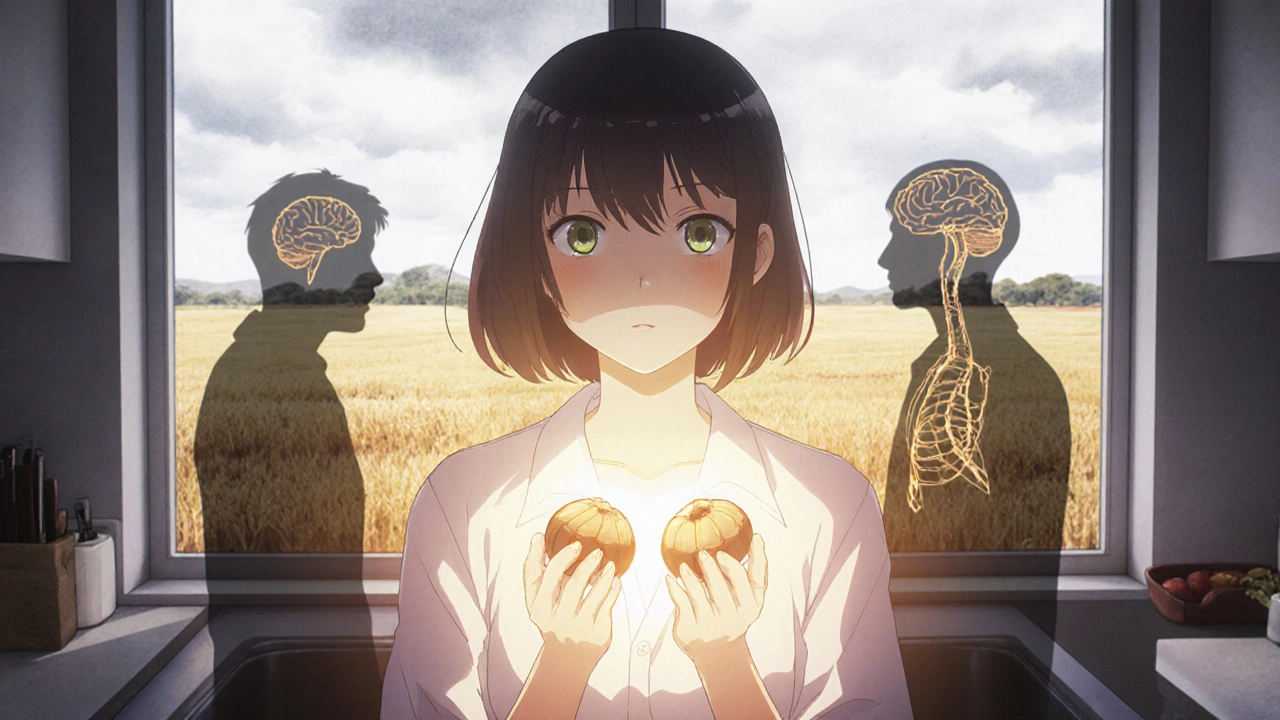
Best Food Sources of Selenium
You can get selenium from food-no supplements needed-if you know where to look. Here are the top sources, ranked by selenium content per serving:
- Brazil nuts: Just one nut gives you 68-91 mcg. Two to three nuts a day is enough for most people. But don’t go over five-it’s easy to overdose.
- Seafood: Tuna (92 mcg per 100g), sardines (45 mcg), shrimp (37 mcg), and salmon (40 mcg) are excellent choices.
- Organ meats: Liver (especially beef liver) contains 30-40 mcg per 100g.
- Eggs: One large egg has about 15 mcg.
- Whole grains: Brown rice, oats, and whole wheat bread have moderate amounts, depending on where they’re grown.
- Chicken and turkey: 20-25 mcg per 100g.
If you’re eating a plant-based diet, focus on Brazil nuts, mushrooms, and whole grains-but be aware that soil quality affects the amount. In Australia, even fortified bread might not give you enough.
Selenium Supplement Dosage: How Much Is Too Much?
The recommended daily amount is 55 mcg for adults. Pregnant women need 60 mcg, and breastfeeding women need 70 mcg.
Supplements usually come in 100 mcg, 200 mcg, or 400 mcg doses. Most people only need 100 mcg daily if they’re not getting enough from food. But here’s the catch: too much selenium can be dangerous.
Selenium toxicity is rare, but it happens. Symptoms include:
- Brittle nails or hair loss
- Garlic-smelling breath
- Stomach upset
- Nerve damage
The safe upper limit is 400 mcg per day. That’s the maximum you should ever take in a 24-hour period. Most people don’t need anywhere near that.
If you’re taking a supplement, choose selenomethionine or sodium selenite. Selenomethionine is better absorbed and more stable in the body. Avoid supplements with more than 200 mcg unless prescribed by a doctor.
Who Should Consider a Selenium Supplement?
You might benefit from a selenium supplement if:
- You live in Victoria, Tasmania, or other low-selenium regions
- You have an autoimmune thyroid condition like Hashimoto’s
- You’re vegan or vegetarian and avoid Brazil nuts
- You’re over 50 and noticing brain fog or low energy
- You’ve had gastrointestinal surgery or have a malabsorption disorder
- You’re recovering from a serious illness or infection
If you’re unsure, get a simple blood test. A serum selenium level below 70 mcg/L usually indicates deficiency. Many GPs in Australia can order this test-it’s not expensive and often covered by Medicare if you have thyroid symptoms.
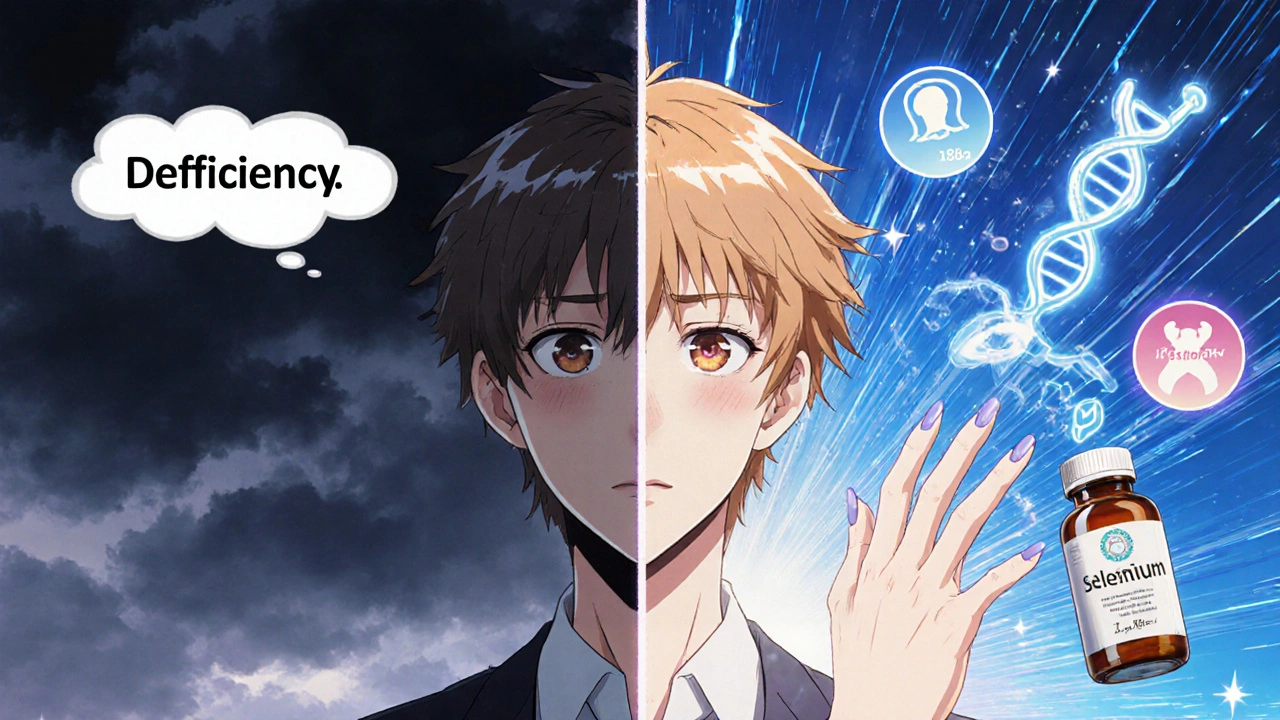
What to Avoid
Don’t take selenium supplements if you:
- Already eat several Brazil nuts daily
- Have a history of skin cancer (some studies suggest high selenium might increase risk in those with prior non-melanoma skin cancer)
- Are on blood thinners like warfarin (selenium can interact)
- Have kidney disease (your body can’t clear excess selenium well)
Also, don’t combine multiple supplements that contain selenium. Check the labels on your multivitamin, prenatal, or immune booster-they often include selenium already.
Real-Life Results: What People Experience
One Melbourne woman, 58, came to her naturopath after years of fatigue and weight gain. Her TSH was high, her T3 was low, and her selenium level was 58 mcg/L-below normal. After starting 100 mcg of selenomethionine daily and eating two Brazil nuts a day, her energy improved in three weeks. Three months later, her thyroid antibodies dropped by 40%, and she lost 6kg without changing her diet.
A 42-year-old teacher from Hobart, who ate mostly plant-based foods, started taking 50 mcg daily after a blood test showed deficiency. Within six weeks, his frequent colds stopped. He hadn’t been sick in over a year.
These aren’t outliers. They’re common outcomes when a simple, overlooked nutrient is restored.
Final Thoughts: Selenium Isn’t Optional
Selenium isn’t a supplement for the trendy or the wealthy. It’s a basic biological requirement-like water, oxygen, or vitamin D. If you’re not getting enough, your body is working with one hand tied behind its back.
You don’t need to take a pill every day. But if you live in Australia, eat processed foods, avoid seafood, or feel constantly tired, it’s worth checking your levels. Two Brazil nuts a week might be enough. Or a low-dose supplement. Either way, don’t ignore it.
Your thyroid, your immune system, and your brain are counting on it.
Can you get too much selenium from food?
Yes, but it’s rare. Brazil nuts are the biggest risk-just five nuts can exceed the daily upper limit of 400 mcg. Other foods like seafood, eggs, and meat won’t push you over the edge unless you’re eating huge amounts daily. The real danger comes from supplements taken on top of a selenium-rich diet.
Is selenium good for hair and nails?
It can be. Selenium helps with keratin production and protects hair follicles from oxidative damage. People with selenium deficiency often experience brittle nails and hair thinning. Correcting the deficiency can improve both, but selenium won’t regrow hair if the cause is genetic or hormonal.
Does selenium help with anxiety or depression?
There’s emerging evidence. Selenium plays a role in brain function and neurotransmitter balance. A 2022 study in the Journal of Affective Disorders found that people with low selenium had higher rates of depression. Supplementing improved mood in those with deficiency-but not in people with normal levels. It’s not a replacement for therapy or medication, but it can support mental health when levels are low.
How long does it take to see results from selenium?
It depends on what you’re targeting. Energy and immune function can improve in 2-4 weeks. Thyroid antibodies may take 3-6 months to drop. For brain health or long-term disease prevention, benefits build over years. Consistency matters more than high doses.
Should I take selenium with vitamin E?
They work well together. Both are antioxidants and support each other’s function. Vitamin E protects cell membranes, while selenium helps regenerate vitamin E after it’s used up. Many supplements combine them, but you don’t need to take them together if you’re getting both from food.
Is selenium safe during pregnancy?
Yes, and it’s important. Selenium supports fetal brain development and helps prevent complications like pre-eclampsia. The recommended intake is 60 mcg during pregnancy and 70 mcg while breastfeeding. Stick to food sources or low-dose supplements (100 mcg or less) unless your doctor advises otherwise.

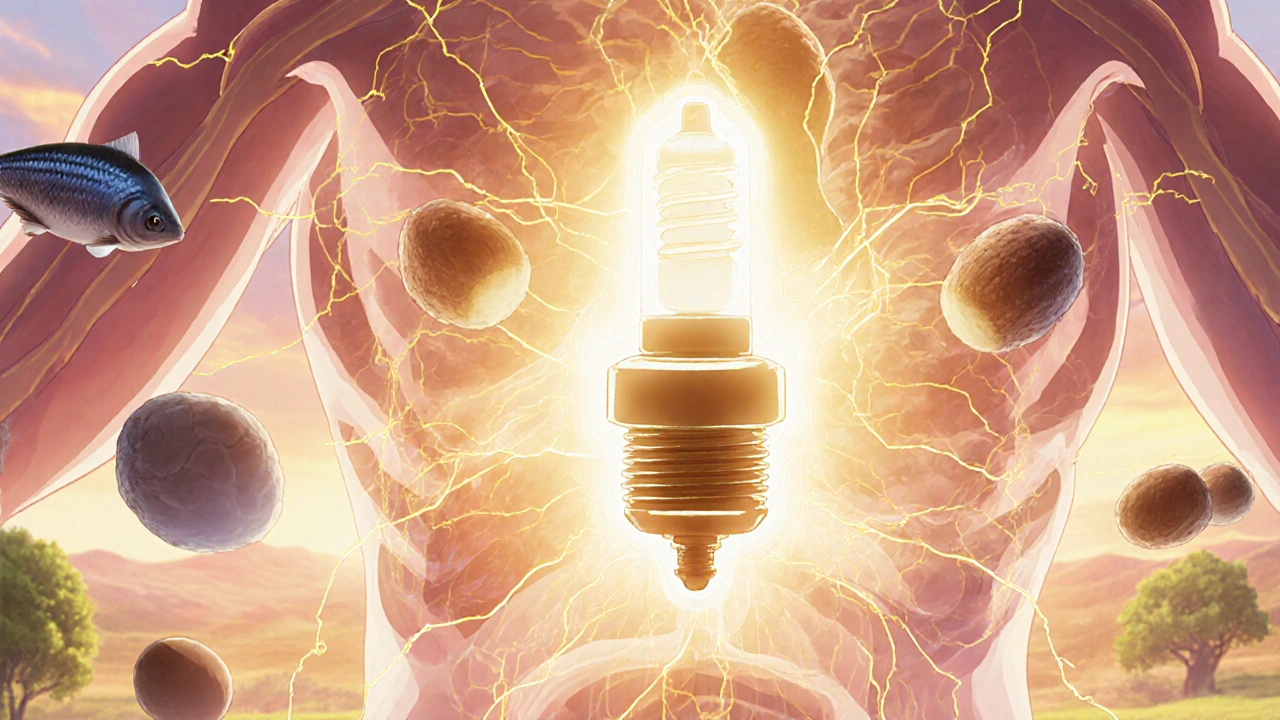

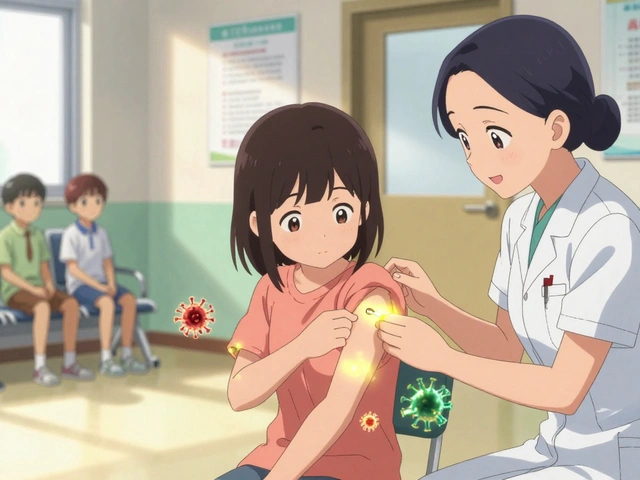
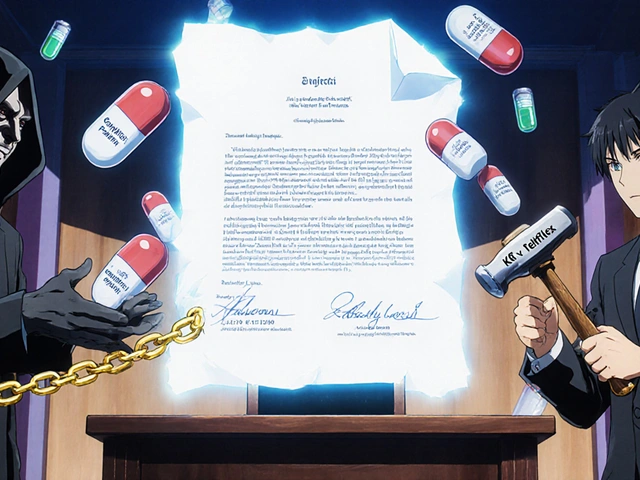
Comments (10)